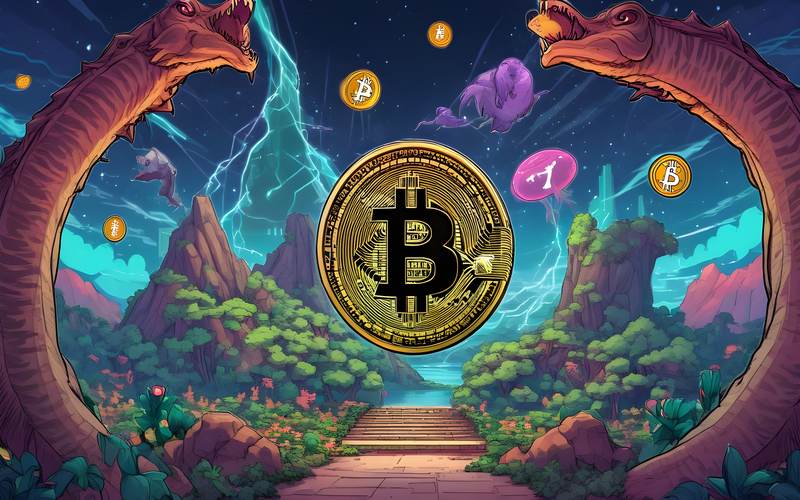DeFi, short for Decentralized Finance, refers to a broad category of financial applications and protocols built on blockchain technology. These programs seek to deliver conventional financial services in a decentralized, open, and transparent manner. Here are some major categories within the DeFi ecosystem:

Decentralized Exchanges (DEXs):
DEXs enable peer-to-peer trading of cryptocurrencies without the need for intermediaries or centralized order books. Users can trade tokens directly from their wallets, and trades are executed through smart contracts. Popular DEXs include Uniswap, SushiSwap, and PancakeSwap.
Lending and Borrowing Platforms:
DeFi lending platforms allow users to lend their cryptocurrencies and earn interest, while borrowers can use their crypto as collateral to borrow assets. These platforms use smart contracts to facilitate borrowing and lending without intermediaries. Examples include Compound, Aave, and MakerDAO.
Stablecoins:
Stablecoins are cryptocurrencies designed to maintain a stable value by pegging them to a reserve asset like fiat currency or commodities. Stablecoins provide stability in the volatile cryptocurrency market and serve as a medium of exchange and store of value within DeFi. Popular stablecoins include Tether (USDT), USD Coin (USDC), and Dai (DAI).
Yield Farming and Liquidity Mining:
Yield farming involves staking or providing liquidity to DeFi protocols in exchange for rewards. Users can earn additional tokens or fees by participating in various liquidity pools or lending platforms. This practice is often referred to as liquidity mining. Projects like Compound, SushiSwap, and Yearn.finance have implemented yield farming mechanisms.
Synthetic Assets:
Synthetic asset platforms enable the creation and trading of tokenized versions of real-world assets like stocks, commodities, or indices. These tokens represent the value of the underlying assets and provide exposure to traditional financial markets within the DeFi ecosystem. Examples include Synthetix and Mirror Protocol.
Insurance:
DeFi insurance protocols offer coverage against smart contract vulnerabilities, hacks, or other risks within the DeFi space. Users can purchase insurance policies using cryptocurrency to protect their funds and investments. Projects like Nexus Mutual and Cover provide decentralized insurance solutions for DeFi users.
Decentralized Oracle Networks:
DeFi applications often require real-time data from the external world. Decentralized oracle networks bridge the gap by providing trusted data to smart contracts. Oracles ensure that external data, such as asset prices or market information, is reliable and tamper-resistant. Examples include Chainlink and Band Protocol.
Asset Management and Investment Platforms:
DeFi asset management platforms allow users to pool their funds together, and investment strategies are executed using smart contracts. These platforms provide exposure to various investment opportunities, automated portfolio rebalancing, and yield optimization. Examples include Set Protocol and Balancer.
Governance and DAOs:
Governance and Decentralized Autonomous Organizations (DAOs) play a crucial role in the DeFi ecosystem, enabling community-driven decision-making, protocol upgrades, and the allocation of resources. Here’s a closer look at governance and DAOs in the DeFi space:
Governance in DeFi:
Governance in DeFi refers to the process of making collective decisions about the rules, parameters, and upgrades of decentralized protocols. It allows token holders and stakeholders to participate in shaping the future direction of a project. Governance mechanisms typically involve voting on proposals, which can cover a wide range of topics, including protocol upgrades, fee structures, parameter adjustments, and allocation of funds.
Decentralized Autonomous Organizations (DAOs):
DAOs are entities governed by smart contracts, operating on a blockchain. They are designed to be transparent, decentralized, and governed by the collective decision-making of their participants. DAOs leverage the power of blockchain technology to enable stakeholders to vote, allocate funds, and participate in the governance process without relying on a centralized authority.
Roles and Functions of DAOs in DeFi:
Decision-Making: DAOs provide a platform for stakeholders to participate in the decision-making process. Token holders can submit and vote on proposals that affect the protocol’s rules, upgrades, or allocation of resources. Usually, the voting power is inversely correlated with the quantity of tokens possessed.
Governance Token:
DAOs often issue governance tokens, which represent voting rights and influence over the protocol. These tokens allow holders to participate in the governance process, shape the project’s future, and potentially receive rewards or benefits associated with the protocol’s success.
Community Engagement:
DAOs foster community engagement and incentivize active participation. By giving token holders a say in the project’s governance, DAOs encourage a sense of ownership, alignment of interests, and the collective development of the ecosystem.
Challenges and Considerations:
Implementing effective governance in DAOs can present challenges and considerations, including voter apathy, token distribution issues, governance attacks, and decision-making scalability. Ensuring broad participation, addressing potential governance capture, and designing mechanisms for effective decision-making are ongoing areas of exploration and improvement within the DeFi ecosystem.
Prominent Examples of DAOs in DeFi:
Some notable examples of DAOs in the DeFi space include MakerDAO, which governs the Dai stablecoin protocol, Compound, which manages the Compound lending protocol, and Uniswap, which operates the popular decentralized exchange. These projects have demonstrated the power of community-driven decision-making and the potential for decentralized governance to shape the future of financial protocols.
Expanding:
It’s important to note that the DeFi space is dynamic and rapidly evolving, with new categories and innovations emerging over time. The above categories provide a glimpse into the major areas of DeFi, but the ecosystem continues to expand with new protocols and applications pushing the boundaries of decentralized finance.
Disclaimer
Remember, investing in cryptocurrencies involves risks, and it’s important to conduct thorough research and seek professional advice before making any financial decisions.
(Please keep in mind that this post is solely for informative purposes and should not be construed as financial or investment advice.)


